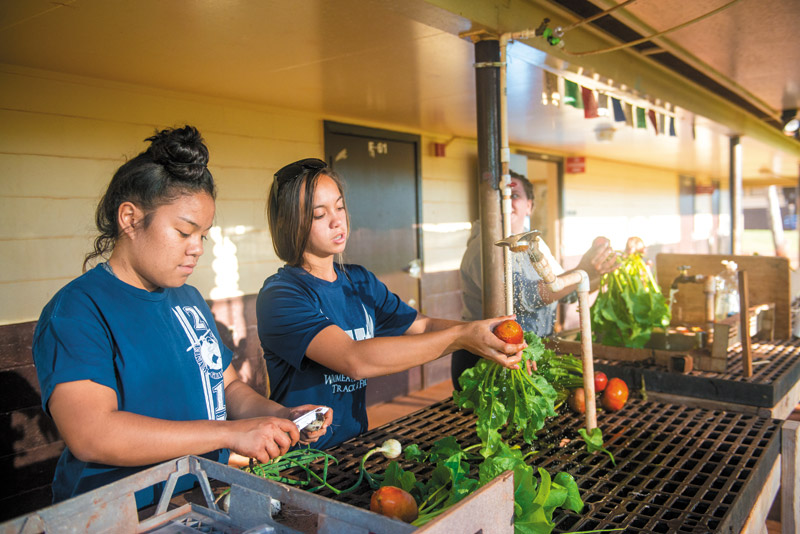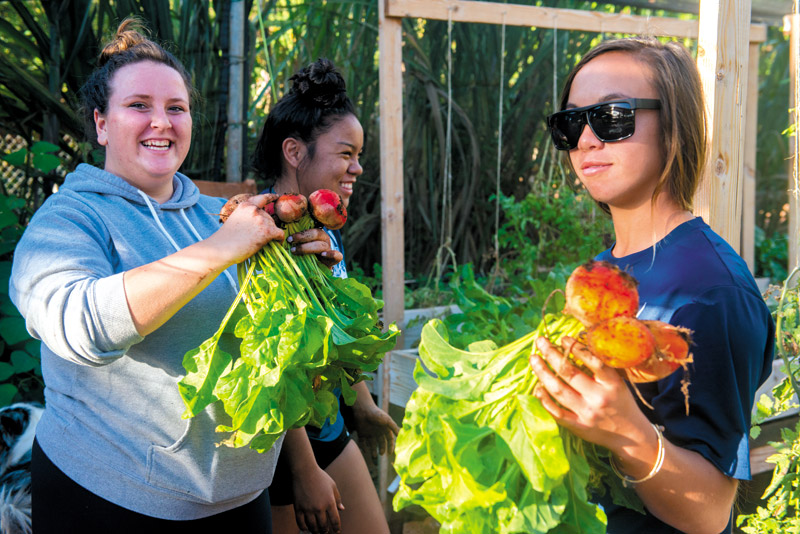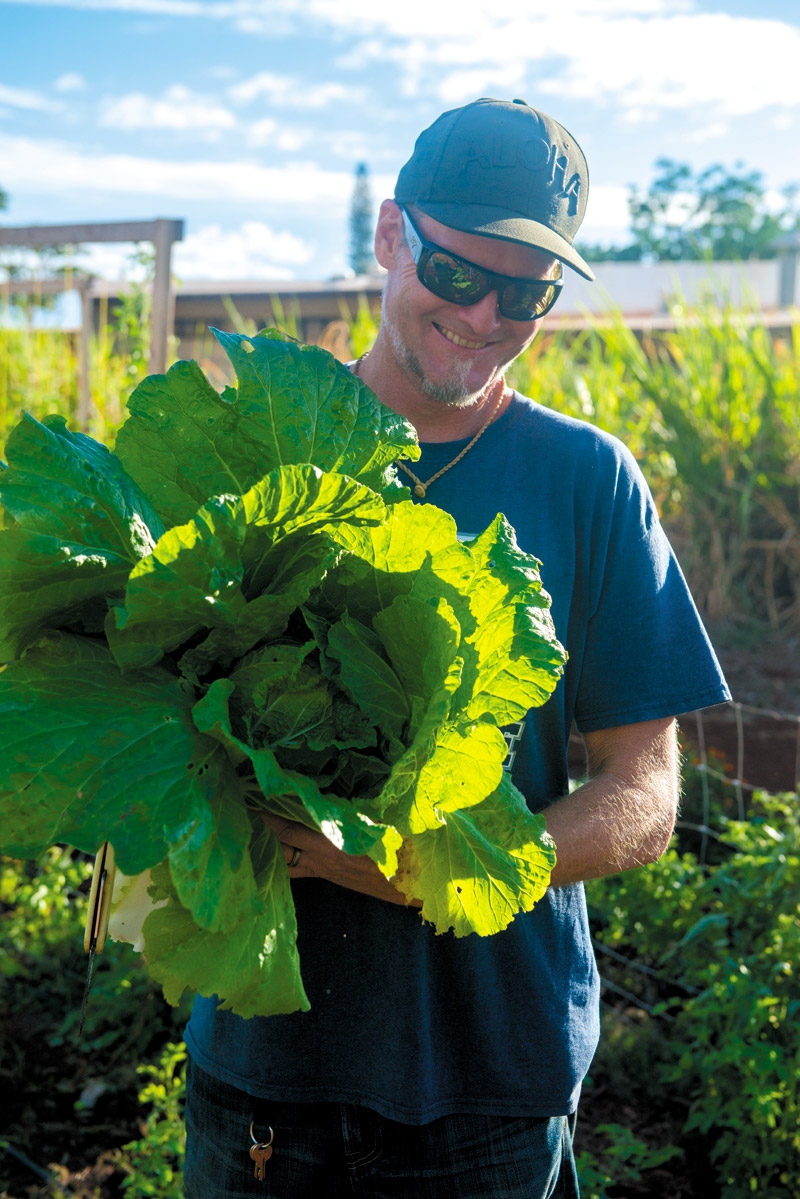Planting Seeds Of Survival
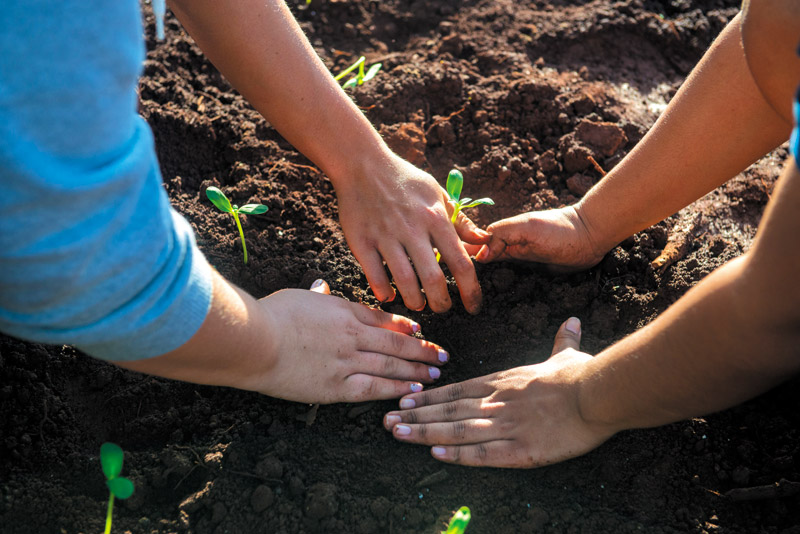
Though farming isn’t easy work, the students at Waimea High School love to see the results of their labor.
LIVING OFF THE LAND IS CRUCIAL FOR HUMAN EXISTENCE, SAYS WAIMEA HIGH TEACHER GREGORY HARDING, AND THROUGH THE SCHOOL’S ALOHA GARDEN, STUDENTS ARE TAKING THE CONCEPT OF FOOD SUSTAINABILITY AND PUTTING IT INTO PRACTICE.
The students of Waimea High School’s agriculture and aquaculture program have no qualms about getting their hands dirty. A group of young ladies who might otherwise be texting their friends after school are instead digging their hands into Waimea’s red dirt at their school’s Aloha Garden on a recent sunny afternoon.
“I loved getting dirty,” recalls alumna Pualilia Kahale, who recently took a trip back home for the holidays.
During her high school career, Kahale spent three years as part of Waimea’s one-of-a-kind garden program, which seeks to teach students how to “live off the land.”
That concept, says Waimea High educator Gregory Harding, is the cornerstone of the project, which he started in 2014 as part of Waimea High’s Career and Technical Education Department.
Harding, a natural resources teacher, wanted to create an agricultural program that would educate students on the process of growing food — everything from planting seeds to harvesting the final products — and taking those skills home with them.
“I don’t care if farming isn’t your major goal,” he says. “But having a garden should be everyone’s priority.”
He adds that digging in the soil and learning techniques like setting up irrigation and proper use of fertilizers is essential to survival.
“If the barges stop, there’s a week’s worth of produce on the shelves for groceries, and then what?” Harding muses.
Waimea High junior Makana Duncan says plenty of people like to talk about the fact that Kaua‘i relies heavily on imported food but follow through with little to no action.
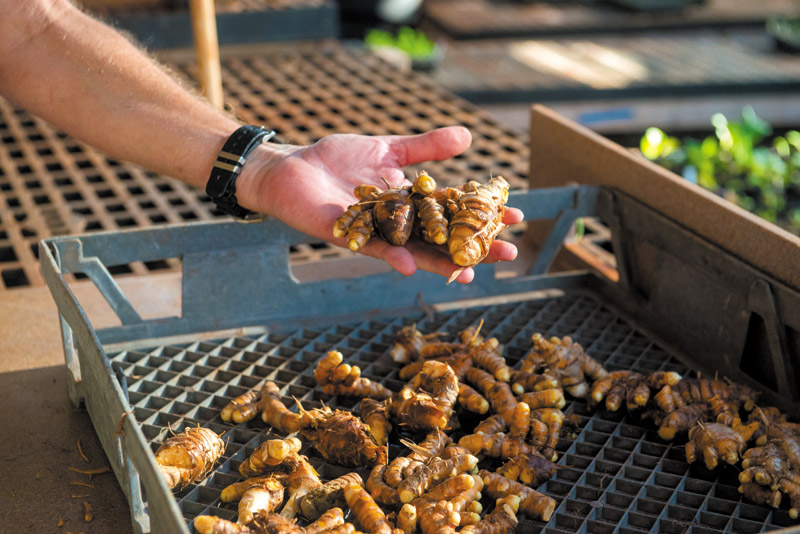
Organic produce, like vegetables, herbs and fruits, are grown at Waimea High School, including the anti-infl ammatory spice turmeric.
“If you’re going to talk like that, do something about it,” she adds. “Actions over words, always.”
Harding is certainly someone who puts his words right into actions. With the help of his enthusiastic students and principal Mahina Anguay, it only took a few years to turn fallow westside land, overgrown with weeds, into a thriving farm.
Prior to its makeover, the plot of land next to his classroom at Waimea High School was a “visual nightmare,” to hear Harding tell it. Now, some 3 acres are filled to the brim with all kinds of chemicaland pesticide-free edibles like taro, vanilla bean, passionfruit, dragonfruit, beets, cherry tomatoes, eggplants, sweet Maui onions, turmeric and microgreens. And the six stalks of bananas he started out with three years ago have grown to more than 250 stalks, ensuring that his students have an endless bounty of the potassium-rich fruit.
The Aloha Garden also is home to egg-laying chickens, an aquaculture area for raising tilapia, and an orchard that includes about 25 citrus trees and five different types of avocado. The list of locally grown, organic food is endless.
Reaping the benefits of the students’ sweaty and dirt-encrusted labor to make this garden possible is one of the most satisfying aspects of the program for Harding, who used to see his students come to school with Oreo cookies and wash them down with Monster Energy drinks.
“That’s disgusting,” he says.
Therefore, he also makes sure they know about each edible’s nutritional value, and how to prepare the food they grow.
“Because we’ve lost a generation who doesn’t know how to cook,” he says. “They know how to turn on a microwave but not cook any wholesome food.”
Maida Koetje, whom Harding calls the program’s “chief farmer,” likes to see the results of her labor and not only share the food with her family, but start her own gardens at home and make healthy meals from the products.
“You are taking control of your own health,” she says.
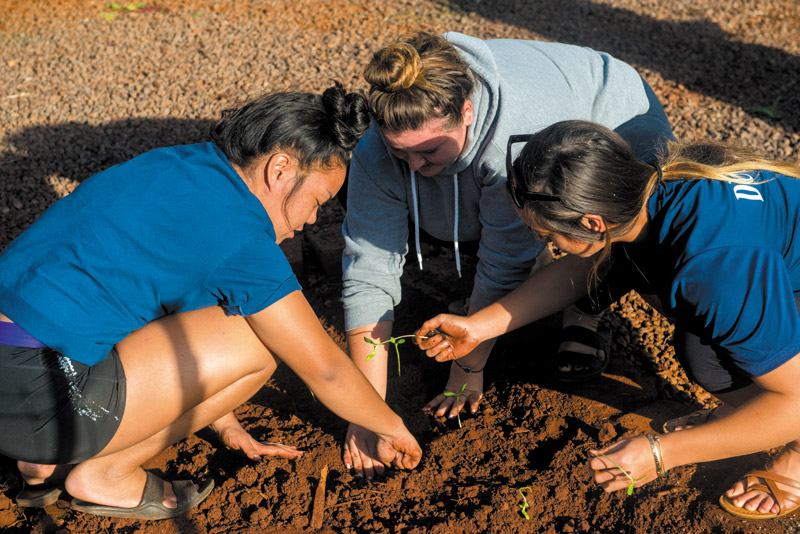
Waimea High School students in the agriculture and aquaculture program love getting their hands dirty.
The students are also helping teachers become healthier by sending out a Mile 23 Produce list of everything that’s available for purchase from the Aloha Garden each week. Waimea High School culinary students also use the locally grown food to prepare dishes.
“It’s way better to know where your food is coming from,” says sophomore Kyleia Kilar. Since the start of the program, she’s been an advocate of growing food sustainably and in as close proximity to where it’s consumed as possible.
Though the project has been a team effort, it’s obvious the program has become a success due to Harding’s passion and his commitment to hands-on teaching.
“I give them respect and I don’t tell them to get out their pencils and their books, I say, ‘Get out your rakes and your hoes,'” says Harding.
“He’s one of the best teachers on this campus,” says Duncan.
She tells her peers, “This is one of the best teachers you’re ever going to get; don’t take it for granted.”
Harding aspires to retire at some point in the near future and wants to leave the program as his legacy — a legacy that he is certain, however, wouldn’t be possible without his dedicated students.
“I couldn’t do it without them,” he says.


